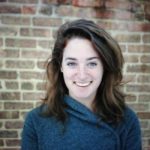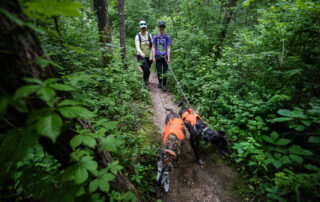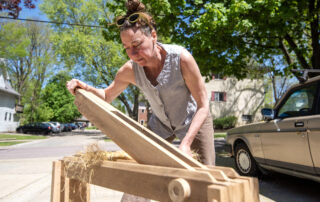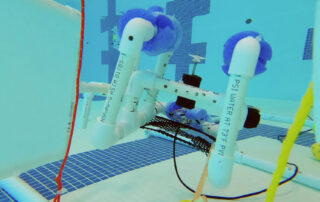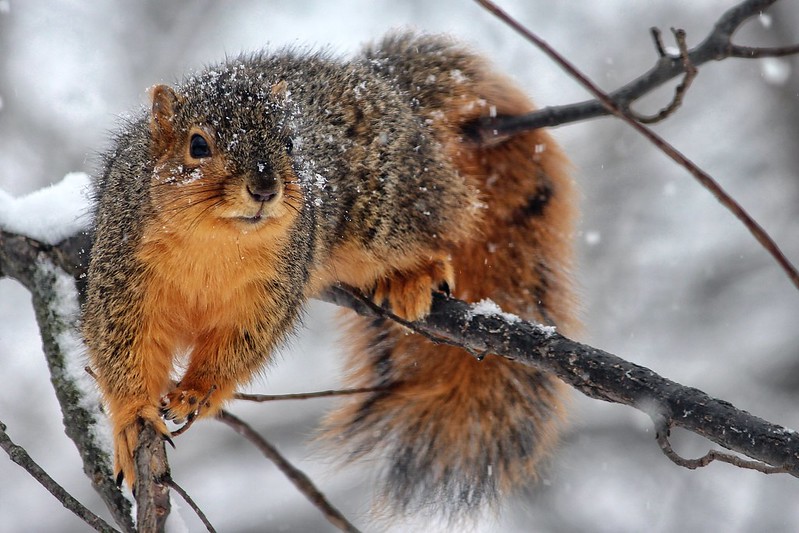Amy Kerwin, founder and executive director of Primates Incorporated, says monkeys used in research and drug testing have often never been outside, and are sometimes singly-housed away from other monkeys. Kerwin knows, she used to work in a primate testing lab.
“Over time, I grew pretty close to [the monkeys],” she said. “No matter how much enrichment or treats we gave them, the minimum guidelines were a species-inadequate environment for them,” she said.
“We were getting all this money to test on monkeys because they’re so similar to us, and yet I’m seeing abnormal behavior from the species because of the environment,” she said, referring to the minimal housing guidelines often implemented in research labs. “And I think that’s when the perspective change began for me.”
Kerwin, while working full time at the lab after getting her degree in Medical Microbiology, enrolled in business school. Her goal was to figure how to offer retirement to monkeys that weren’t otherwise being given the chance. “I had learned that other labs were retiring monkeys, but our lab wasn’t. I thought that, you know, maybe I could be the one to help bring about change.” She resigned from the lab when it became clear retirement was something only she envisioned – she was going to have to do it herself.
Eight years later, Primates Incorporated is home to almost a dozen monkeys – some retired from pet trade, most from laboratories.
“She has shown that it’s possible to build a sanctuary in Wisconsin for monkeys, which has never been done. And it’s the only one like it in the whole country,” says Amber Zorn, employee and primate caretaker at Primates Inc. “It’s an honor to know her, it’s an honor to work with her.”
Kerwin mentions the increase of testing on primates during the COVID-19 pandemic. “The fact is, right now, there are thousands of monkeys being tested on. And yes, people want alternatives implemented,” she says referring to the idea that animal testing should be halted altogether.
“It’s tough to stay in the middle of such a controversy. But by staying in the middle, I feel that we can help more monkeys, because the least we can do is give back to them while the testing is still happening.”
(A version of this story also aired on Wisconsin Public Radio on October 12, 2021.)
